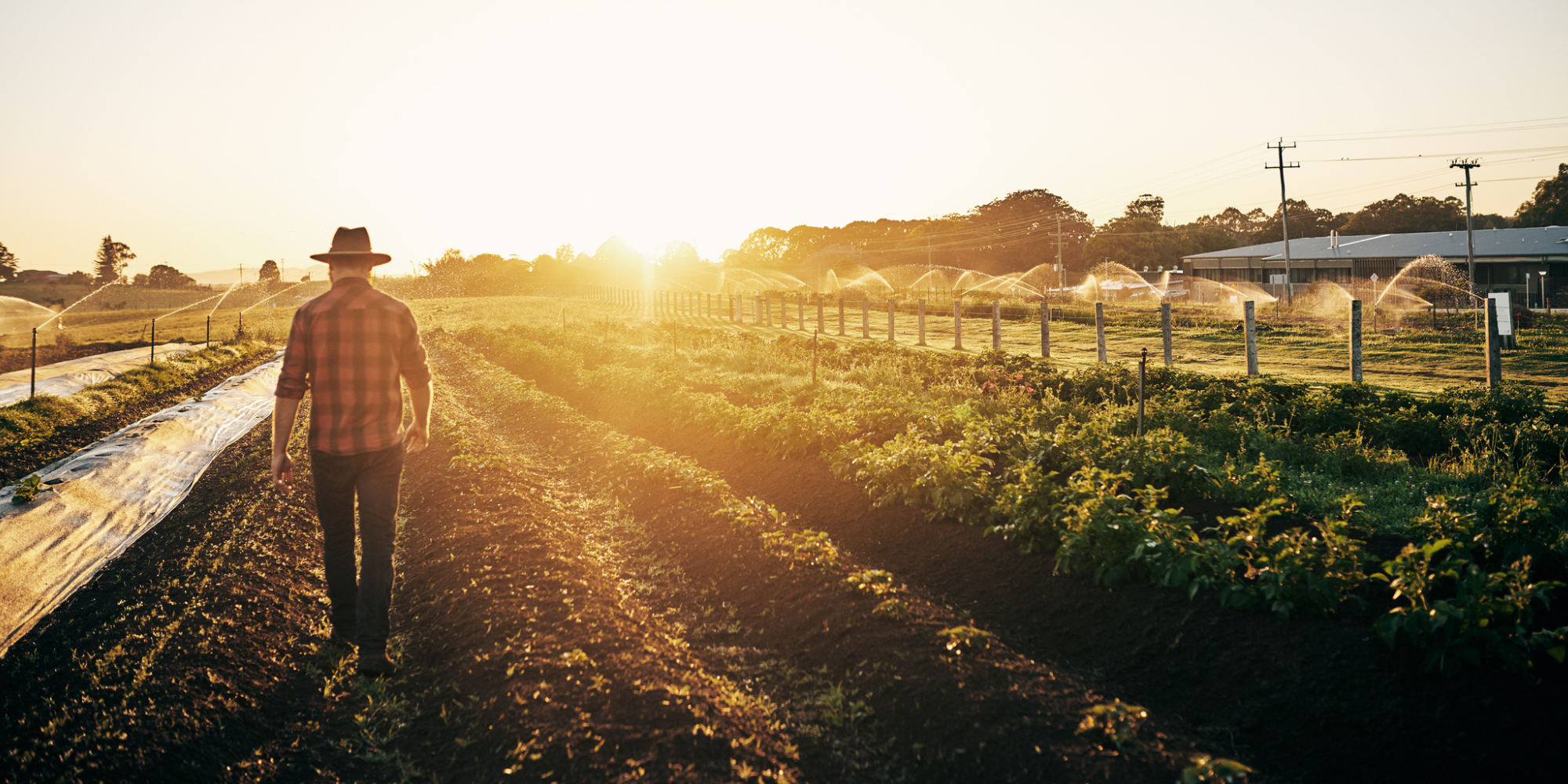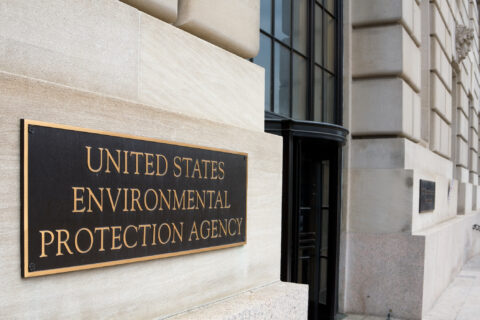This year, local leaders should keep an eye out for the reauthorization of the most impactful piece of legislation related to agriculture and food, commonly referred to as the Farm Bill.
Administered by the United States Department of Agriculture (USDA) and set to expire at the end of the fiscal year on September 30, 2023, this historically bipartisan five-year authorization bill establishes federal farm, food and rural policy. This legislation has a tremendous impact on both rural and urban communities, farming livelihoods and food economies, which in turn will affect the environment, local and regional economic growth and public health.
As Congress begins a comprehensive review of the critical programs funded through the Farm Bill, now is an important opportunity for local leaders to advocate for the programs and policies that impact their communities, including many of the COVID-related flexibilities that would have tremendous benefit if made permanent.
Congress began the reauthorization process by soliciting stakeholder input, including preliminary hearings in both the House and Senate Agriculture Committees. Representative Glenn Thompson (R-PA) and Chair of the House Committee on Agriculture has indicated his desire for a bipartisan bill this year and Senator Debbie Stabenow (D-MI), Chair of the Senate Committee on Agriculture, Nutrition, and Forestry has also shared her goal of passing a bipartisan bill on time.
Congressional leadership’s commitment to working in a bipartisan fashion in a timely manner is a good indicator that the Farm Bill will see a five-year reauthorization, but there are competing priorities within the legislation that local leaders representing communities of all sizes and locations should be aware of.
Priorities in the Farm Bill for Cities, Towns and Villages
There are 12 titles in the Farm Bill with programs and policies to help support rural development and economic growth, invest in local infrastructure, increase conservation efforts and environmental protection measures, ensure low-income individuals have access to nutritious food and resources and more. Individual programs across many of the titles are relevant and open to local government applicants, regardless of community size.
Here are three key priority areas for cities, towns and villages as Congress prepares the 2023 Farm Bill.
Rural Development
A significant portion of Farm Bill provisions are tailored to help underserved rural and small communities. The Rural Development Title includes funding for water and wastewater infrastructure programs, energy programs, broadband expansion and deployment programs, and electric infrastructure programs.
The USDA Rural Utilities Service Water and Environment Programs provide loans, grants and loan guarantees for drinking water, sanitary sewage disposal, solid waste and storm drainage facilities in rural communities of 10,000 or less. For example, last year, the City of Lewisburg received $52.7 million through the Water and Waste Disposal Loan and Grant Program to upgrade its water treatment facility. The city will construct a new raw water intake structure and two new water storage tanks, as well as replace roughly six miles of water distribution lines.
Rural communities are also eligible for a variety of grants, loans and loan guarantees for broadband infrastructure. Rural residents remain substantially less likely than their urban and suburban counterparts to have access to broadband service.
The largest of USDA’s broadband programs is the ReConnect Program, which was created in 2018 and has been extended annually by Congress. The Farm Bill provides Congress with an opportunity to create a longer-term funding mechanism for ReConnect.
USDA also manages a variety of other programs to support rural broadband and telephone access: the Telecommunications Infrastructure Program, Rural Broadband Program (RBP), Community Connect Grant Program (CCGP), and Distance Learning and Telemedicine Program (DLTP). These grant and loan programs provide targeted support for rural broadband infrastructure above and beyond the funds provided by states or the federal programs included in the Bipartisan Infrastructure Law.
Food and Nutrition
In urban and rural communities across the nation, nutrition programs like the Supplemental Nutrition Assistance Program (SNAP) are heavily utilized to connect low-income residents with access to healthy food options. SNAP provides nutrition benefits to supplement the food budget of in-need families so they can purchase healthy food and move towards self-sufficiency.
Throughout the COVID-19 pandemic, communities across the country leveraged waivers to increase ease of access to fresh food for their residents. In Minneapolis, the city has committed $500,000 of their State and Local Fiscal Recovery Funds (SLFRF) through the American Rescue Plan Act (ARPA) to a program to expand capacity at food shelves, food distribution pop-ups, farmers markets and small food retailers who accept SNAP-EBT cards. The city’s investment to expand capacity for food suppliers is a contributory investment into the community’s utilization of the SNAP program.
Additionally, the Farm Bill includes funding for programs to incentivize and encourage access to local, healthy foods. These include the Nutrition Incentive Program, a competitive grant program that provides low-income consumers with cash incentives that increase their purchasing power at farmers markets, the Healthy Food Financing Initiative to help eliminate food deserts and the Senior Farmers Market Nutrition Program, which incentivizes seniors to buy fresh produce from farmers markets. In 2021, the City of Boston won a $500,00 Nutrition Incentive Program grant to expand its Boston Double Up Food Bucks program to increase consumption of fresh fruits and vegetables among SNAP participants in neighborhoods with a high rate of food insecurity.
Conservation Programs
The Farm Bill’s voluntary conservation programs enable farmers and ranchers to improve water quality, reduce soil erosion and enhance wildlife habitat. These practices not only improve environmental quality, but also have positive benefits for water quality for surrounding communities. The Inflation Reduction Act (IRA) provided an unprecedented $19.5 billion for USDA conservation programs, including $4.95 billion for the Rural Conservation Partnership Program (RCPP), which provides grants for locally led conservation projects that address climate change, enhance water quality, and address other critical challenges on agricultural land.
Last year, the City of Decatur received a $9.8 million RCPP grant to help producers and landowners adopt climate-smart practices that improve water quality by reducing sediment and nitrates in the Mississippi River Basin Critical Conservation Area. The project aims to reduce annually up to 50 percent of sediment and 20 percent of nitrate loading to the local water supply reservoir.
The Natural Resources Conservation Service plans to open the next RCPP funding opportunity in early spring, which will include IRA funds from fiscal year 2023.
Next Steps
The relevant House and Senate committees will continue to hold hearings on Farm Bill priorities early this year while working toward drafting legislation. NLC shared our priorities with these committees as they move forward with the reauthorization process.
Even though the Farm Bill has been a historically bipartisan bill, with a divided Congress and overall cost concerns, there are some provisions that will draw stronger partisan positions, such as reinstating work requirements for SNAP recipients. Climate policy and funding will also be critically looked at, including redirecting IRA conservation funding and preempting state and/or local authority to implement programs to protect public health and the environment.
Like the conversation around infrastructure workforce, one of the challenges with regenerative, climate-smart agriculture programs and policies is the need to ensure that workers have the updated skills to do these jobs, which will require training and an investment in technical assistance. The issue of immigration will likely also be part of the workforce negotiations. In the 117th Congress, the House-passed bipartisan proposal to provide farmworkers legal status, the Farm Workforce Modernization Act, failed in the Senate but will likely be up for debate again. NLC will continue to advocate for local priorities as the Farm Bill negotiations progress.
Bipartisanship across both chambers will be essential to passing the Farm Bill this year.
Share Your Feedback
Local leaders are encouraged to submit their stakeholder feedback to the U.S. Senate Committee on Agriculture, Nutrition & Forestry regarding the Farm Bill Reauthorization and their related priorities here.












